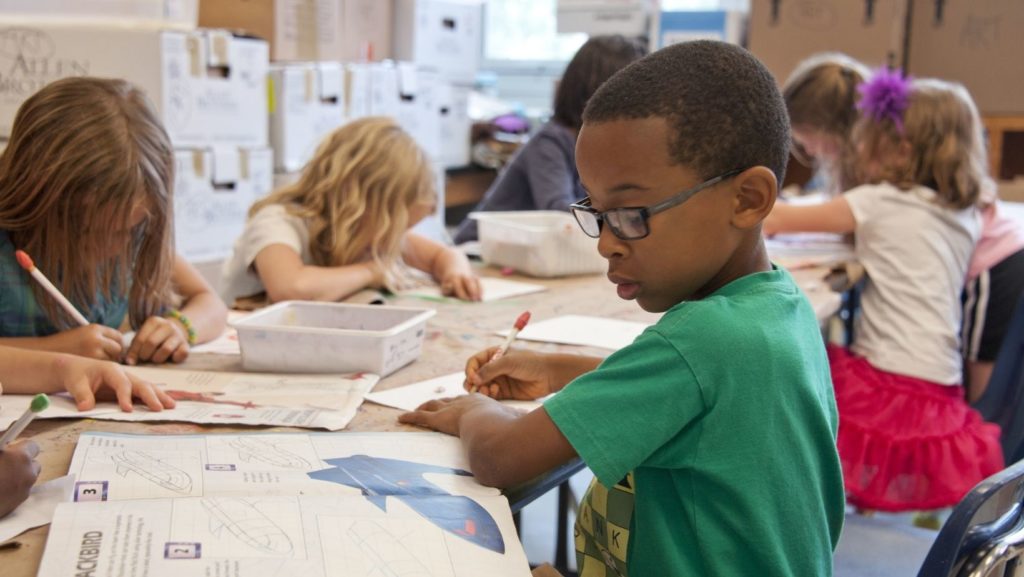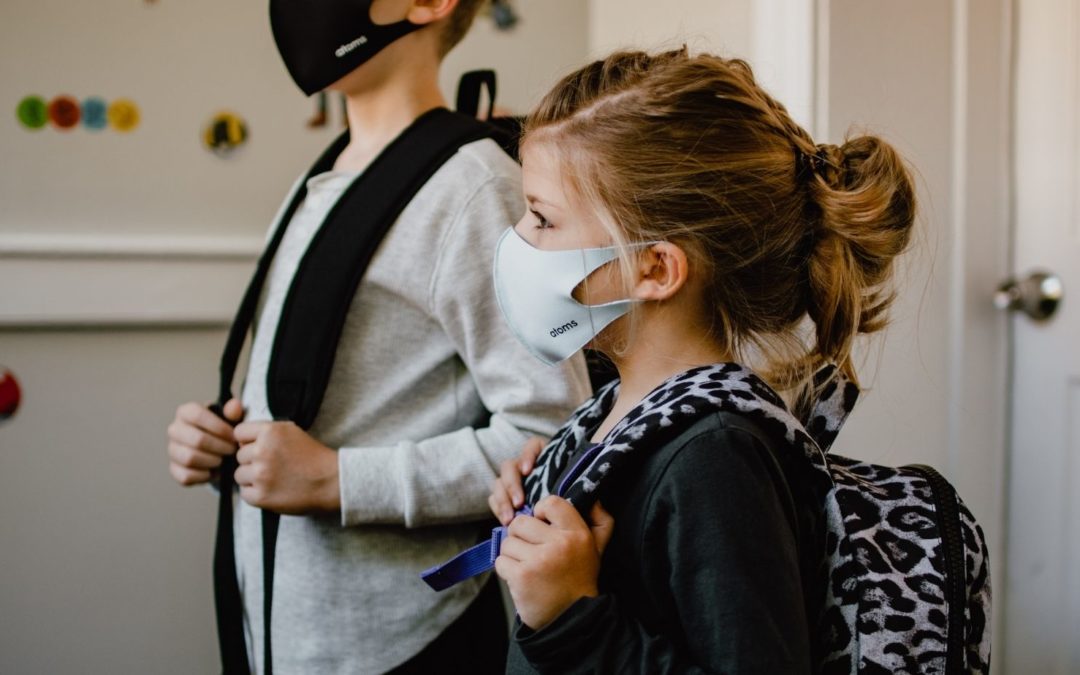Given that kids will be returning to in-person school in September, we at Narbis wanted to help families and caregivers of remote learners from the 2020-2021 school year, now facing re-entry to an in-person learning situation, help their children make the transition smoother and less fraught with worry.
To start, parents might want to get the logistics of lunch, notebooks and other backpack detritus down pat. Katharine Hill, MS, MAT, AET, a Learning Specialist & Educational Therapist with UpNext Learning in New York suggests having kids organize their backpacks and school supplies, start going to bed a few minutes earlier every night, and rehearse their school commute before the year starts.
“A child whose summer sleep habits are very different from the school-year ideal may need several weeks to gradually adjust their schedule. Starting early helps kids begin the school year rested and able to function optimally,” they say.
they also suggests considering having kids take a break from academics during the middle of the summer, but return to a basic practice routine for 2-4 weeks before school begins. (See below for a few of their practice suggestions).
If school will look quite different from remote learning in terms of skills like writing out math problems by hand, prioritize kids practicing in the mode they will use at school.

Tools or activities to keep students’ minds active include:
Online:
- Reading Skills – https://www.lexiaforhome.com/
- Math – https://www.dreambox.com/, https://happynumbers.com/
- Writing – https://storybird.com/
Paper-based resources:
- Writing, handwriting – https://www.lwtears.com/
- Overall curricular practice – https://www.evan-moor.com/
Games & Magazines:
- https://mathforlove.com/games/prime-climb/
- https://codenamesgame.com/
- https://theweekjunior.com/
- https://shop.cricketmedia.com/
Rebecca Rogers, a High School social studies teacher, echoes the idea of starting a bedtime routine before school starts as ideal.
“Start with making sure to go to bed not early, but not after midnight. Ease into it to make sure when the kids have to start going to sleep and getting up for school, it isn’t a complete shock on their bodies,” they say.
In addition, in light of the fact that many distance learning students have not had to sit and work on assignments for eight hours a day like they usually do in school they won’t immediately be used to sitting in an hour and a half classes, and being productive the whole time.
Finding activities (that are NOT video games/social media) to have the kids complete for a couple hours a day will get them used to focusing on a task for longer periods of time, and prepare them for longer class periods in regular school hours.
Once school starts, remote learners will find themselves in a very different situation when it comes to lunch, notes Allison Tsomos, Vice President of Operations at Celebree School, an early childhood education center.
For little ones especially, lunchtime can present some unforeseen obstacles for children who have not yet learned to navigate a packed lunch. There are many times small motor skills are needed to open milk cartons, punch a straw through a juice pouch, unzip a baggie and pull out a sandwich or unseal a Tupperware container. Those fruit snack pouches are even difficult for us adults to open sometimes, imagine the frustration a young child might feel. The good news is, we have lunch everyday so there are plenty of opportunities to practice.
“Give your child a packed lunch several times a week and observe what he or she can independently master. You can join them for lunch and model some etiquette too. Encourage them to unfold a napkin and place it on the table and then their food on top and use a second napkin for wiping their mouth and hands,” says Tsomos. “Give them hints and let them practice opening various packages or peeling a mandarin. Mastering these skills will not only be a blessing to the lunch ladies, more importantly, it will give your child confidence and a feeling of independence at school. Talk about some things that your child would like to talk to their friends about at lunch time too.”
Back to school is always rife with moments of stress and nervousness for caregivers and kids alike, but for the former distance learners who are re-engaging in in-person learning for the first time since lockdown, there might be added layers of anxiety. Preparing these students by enforcing routine sleep schedules, encouraging them to prepare their backpacks the night before, and perhaps even practicing new-to-them activities like lunch table protocol, can help siphon off some of the apprehension.







